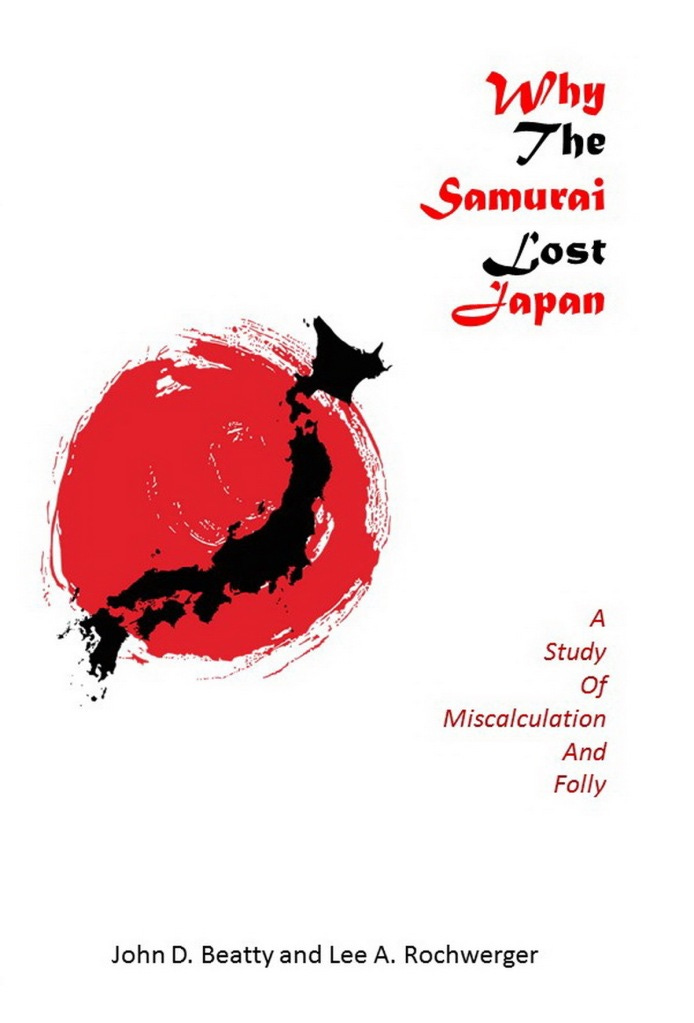Historical Failure Analysis
Say what?
Victory has a hundred fathers and defeat is an orphan
John F. Kennedy, 1961
I intended this Substack mailing effort to promote and sell books (which it has done better than the old WordPress blog did) and to advance the study and writing of history of all kinds, not just my specialty. Now, I'm not the guy to start a whole sub-field called "historical failure analysis," but I'd like to get people thinking in those terms, if possible.
If at first you don't succeed, then skydiving is definitely not for you
Steven Wright
Failure Analysis (FA) is a discipline of engineering that endeavors to determine the cause of a failure, be it a bearing or a bridge, to fix the problem(s) that caused the failure and avoid further failures. Now, applying this to history…dicey, maybe. But perhaps not. To expand on my poor ruminations, I'll be borrowing extensively from other web sites because I understand FA's rudiments but not much more. So, if you work in failure analysis, forgive my clumsy attempt at adapting your discipline to mine.
Failure is always an option if you're not paying attention
John D. Beatty
Reasons for Performing Failure Analysis
In engineering, these include:
Understanding the Root Cause of the Failure
Preventing (Future) Asset or Product Failures
Improving Future Products and Processes
Preventing Financial Losses and Penalties from Failed Components
Meeting Standards for Products and Assets
Determining Liability for Failure
Thanks to TWI Global for this adapted list. I'll borrow more if I can. I'm going to keep my eye on other truths, including...
Those who cannot remember the past are doomed to repeat it
Georges Santayana
Students of the past should recognize the realities of the list above, because, in more than one book/class/discussion, we go straight to the bottom: finding someone to blame. And we shouldn't. Well, maybe we should...sometimes. But it's going to be my position that the Historical Failure Analysis (HFA) I propose should be applied not to battles or generals or even to campaigns, but first, best and most effectively to social groups like whole civilizations and kingdoms, to empires and countries. I believe it is there that we'll find the best use of any such method if we find any use for one like it at all.
What do we mean by "failure?"
I'm going to borrow heavily from the corrosion-doctors.org website. A social group has "failed" when it can no longer act in its society's best interests. It need not be broken entirely, conquered or destroyed, but often may be extinct: civilizations also sometimes transition into others. Any failure can begin with social stresses or environmental influences, by the effects of climate changes (yes, Virginia, there were climate changes before there were SUVs), by changes in neighbors, or by combining these and many other factors. Understanding the relative importance of these factors is the historical analyst's job, but can never be as definitive as an engineer's. Unlike in engineering, understanding what happens to peoples is a matter of opinion and opinion only, for conclusive proof has to wait to develop more reliable time machines than the sources at a scholar's disposal.
History is part legend and part fact, but mostly interpretation by those who have gone before us.
Burgess Meredith in The Master Gunfighter (1975)
Think about that for a while. We don't get proof like engineers do: we reach consensus, sometimes. We go back to the original sources where we can, but the further back we look, the fewer sources survive. When I was in college, I had an issue with some "source material," especially in the classical/ancient world. My professors said, "don't worry about it," but I still do. I mean, Pericles' funeral oration is positively Shakespearean... but did he really say it? Lincoln's Gettysburg Address is what three different reporters who wrote it down in shorthand say it was. So, I look at the source documents and look for corroboration, preferably physical evidence. And that's what we need for HFA to work: corroboration.
Books that analyze historical failures in any systematic way aren't legion. Two examples that I've tried to follow are Jared Diamond's Collapse: How Societies Choose to Fail or Succeed, and Robin Higham's anthology Why Air Forces Fail: The Anatomy of Defeat. Neither book, as far as I could tell, was very methodical about reaching their conclusions, which were nonetheless perfectly valid on their own. Being a writer (first) and a scholar (a close second), I'm concerned about the field I write in because I've been seeing many scholars write critiques of the past without a sound, repeatable method.
So, let's venture upon a method.
The historian should first have a broad knowledge of the events leading to the failure. If the scholar is aware of the failed group's nature and its historical performance, broadly accepted conclusions are more likely. Failure analysis is akin to detective work, gathering, and weighing evidence. Not everyone will buy what we have to say, or the conclusions that we reach, or our method. Some critics are just more inclined to reach the conclusions they want/need to make, rather than those that fit the evidence.
Here's a venture into a method, God help me.
Step One: Define the Failure
Step Two: Determine the Failure's Indicators
Step Three: Identify the Contributing Social, Economic, Political, Demographic and Environmental Causes of the Failure(s)
Step Four: Identify the Military Factors(s) If Any
Step Five: Analyze Each Identified Factor and Its Contribution To the Failure
Step Six: Stop, Think, and Ask: Does This Make Sense?
Step Seven: Publish and Duck
This is a method?
Yeah, this looks a LOT like what most scholars do all the time... but is it? How often do we look at the American Revolution and the War of 1812 and ask ourselves how the British failed their empire-not-yet-imperial and conclude that America was just too far away to keep? How often do we look at WWI in the Pacific and say, "Japan jumped in for a better position in 1941" without realizing that Japan was looking for markets and colonies in 1914, not mid-Pacific positioning… not yet? And who among us doesn't bob our heads up and down and agree that the Cold War ended because of the Soviet system's economic collapse, not the political failure? Who argues that the US manned space program was a significant contributor to that collapse? Can we look at the French Revolution and subsequent global wars from the Catholic Church's standpoint and see if its influence had as much to do with The Terror and the eventual sale of Louisiana as did Bourbon indifference and Napoleon's need for money?
We learn more from failure than success.
I’ve often made that argument with limited agreement. The old saw “nothing succeeds like success” speaks only of the confetti showered on the victors, not of the pain visited on the losers. Not to say that the underdogs deserve something, too, but the constant image of success leads to passivity. Just look at the Royal Navy from Trafalgar to Jutland.
And “Reconsidered…”
Once a month or so, I “reconsider” this issue or that campaign or person or whatever. (Fair Warning: this December I will reconsider Pearl Harbor) I do this primarily because I’ve thought pretty hard about how it fits into our image of the present. Yes, the present depends heavily on the past in ways most people cannot imagine. My “Reconsidered” pieces are analyses using this method—often—but just as often are mere observations of the interconnectivity of everything. If we did not connect an event or person to something else, it just wouldn’t be…
We Go Now to Step Seven...

Historical Failure Analysis is what Lee and I think we did in Why the Samurai Lost Japan: We didn't look at the triumphalist march of the US Navy across the Pacific, for once. We looked first at why the Japanese acted the way they did. We found a combination of reasons, but mostly what we saw was a cultural and institutional failure of Japan's own making. It was also a cultural and institutional inability to build a military organization that...wait for it...learned from its failures. Failure analysis for the Japanese before 1945 comprised examining the plan to discover who failed the plan, not how the plan failed. Consequently, losses like the Coral Sea, Midway, and even the first attack on Wake Island in 1941 were unfortunate blips on the Japanese tableau's landscape, not failed plans.

In The Devil's Own Day: Shiloh and the American Civil War, I tried to emphasize what both sides did wrong before those two days in the Tennessee pine barrens. Neither the Confederates nor the Federals were ready for a battle on that scale, not there, not then. Neither side had more than a handful of "veterans" of any battle, and even they saw nothing on the scale of slaughter they saw that April. Both sides failed at many things, that much is for sure. The relative weights of those failures ultimately paid off by Monday afternoon.
Note that Devil’s Own Day has been withdrawn so that a second edition can be prepared. If you want a copy of the first edition, let me know.
I invite scholars, dilettantes and others to comment and criticize at their leisure.
I just hope it sells more books…
Coming Up…
Guadalcanal Reconsidered
But… but…
And Finally…
On 30 July in:
1419: The First Defenestration of Prague occurred, when a Hussite mob threw a judge, a burgomaster and several members of the town council out a town hall window of the Bohemian capital. King Wenceslaus IV supposedly died of shock upon hearing this. The action led to the Hussite Wars that lasted until 1436.
2003: The Last Classic Volkswagen Beetle ever built rolled off the assembly line, in Puebla, Mexico. Ferdinand Porsche’s original design had gone through five engines (from 1100 to 1600 CCs) and three transmission changes between 1938 and 2003, in twenty different plants from Germany to Australia to Indonesia and Ireland. Over 21.5 million Beetles were built, and by some estimates, over five million of them are still on the road. That’s a LOT of heater boxes to rot out.
And today is NATIONAL FATHER-IN-LAW DAY. Happy day, Howard.

